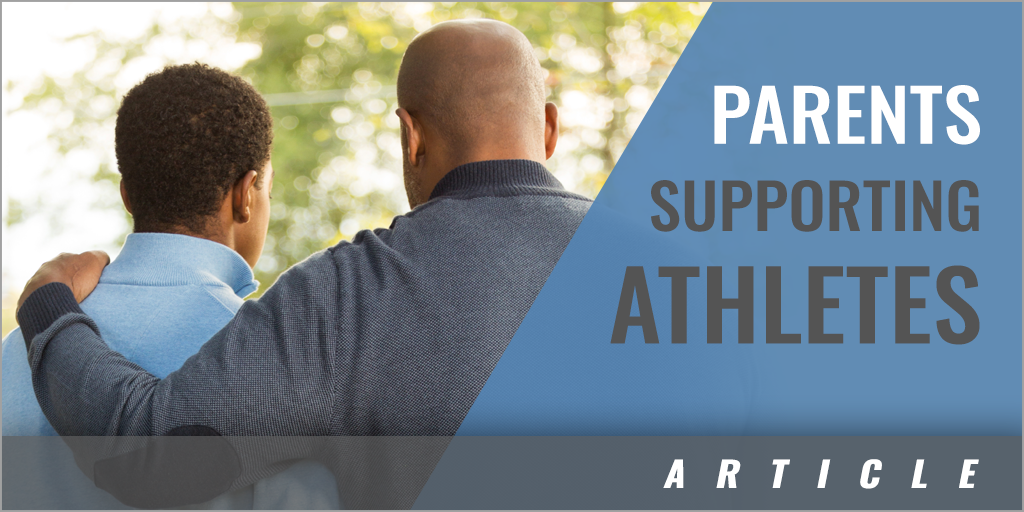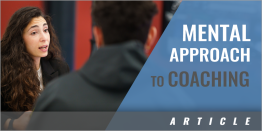|
By: Adam Sarancik Author of: Coaching Champions for Life "Be very particular when choosing a coach or trainer for your athlete, but once you do, step aside and let them do what you chose them to do." Parents of a young athlete are understandably excited to participate in the development of their child. Sometimes, despite their loving intentions, parents hinder the development of their athlete and hinder what coaches are attempting to do to train them. How can parents and coaches work together for the mutual benefit of the athlete? For most purposes, parents should parent and coaches should coach. Parents should not underestimate the value of developing the integrity, character and work ethic of their child. Good coaches know that a player cannot become on the field or court what they are not in life. A teachable spirit and a growth mindset are condition precedents to maximum athletic and player development. Coaches should also recognize that the more successful they are in connecting with, validating, supporting and educating the person, the more success they will have in developing the athlete. And the more success they have developing the person and the athlete, the more success they will have in developing the player. Many problems for the athlete can arise when a parent wants to fulfill both roles as a parent and coach. Many times, issues with communication and trust at home carry over to the child-player and team. Also, even very successful players do not know how the fundamentals and mechanics of their sport should be done, do not know how to teach them to players of different personalities and learning styles, and what the parent-coach was taught as a player, mechanically and in methodology, is not correct. The single most glaring deficiency in most players is not a sport skill; it is a lack of athleticism. Typically, many players grow up competing in tournaments and having success against, at best, average competition. For many, this illusion is not exposed until they finally compete against elite athletes with elite sport skills. Most leagues and teams do not proactively prioritize teaching athletic skills at all or, if they do, not in a systematic and progressive manner. Most practices do not have an athletic training component programmed into them other than some minimal running, bands and ab-core work. Coaches mistakenly believe that running fast and jumping high are sufficient athletic skills. Players are deluded into thinking that they are good enough because they are the best on their team or in their league; the truth is, good is never good enough. Most parents who want to supplement their athlete's development immediately think of weight training. While there is a time and place for this to be sure, this is not what a young athlete needs most. For most athletes, prior to about 8th grade, what they need is to learn is how to move their body well and to apply force effectively, efficiently and quickly. Weight lifting should be held in abeyance and activities such as martial arts, rock climbing, trampoline, swimming, ice skating, snowboarding, mountain biking, dancing and general body movement skills should be prioritized outside of their sport. Athletes should be taught and developed to excel at crawling, walking, marching, skipping, backpedaling, bounding, running, sprinting, jumping, hopping and shuffling in all directions. At practice, games of chase, tag, shuttle runs, speed ladder drills and progressively complex dynamic movement routines should be done and progressed year-to-year by youth Leagues. Physical games should include not just action, but reaction as well. Games and drills teaching mental focus are also essential. If a parent hires a trainer for athletic development, they must be sure the trainer has solid certifications, education and experience and, most importantly, has a track record of success coaching athletes in the same sport the athlete plays. The trainer must understand and excel at programming and teaching the skills that meet the functional demands of the sport. The trainer must be constantly challenged to answer the question, "How will this exercise or drill help me in my sport?" Essential components of an athletic training session for most athletes include:
Parents can assist in the program by:
Coaches and parents must cooperate to mentor the person, athlete and player to achieve their common goal - developing a Champion for Life.
Adam Sarancik is the author of three Amazon Top 100 Best Selling books:
|






